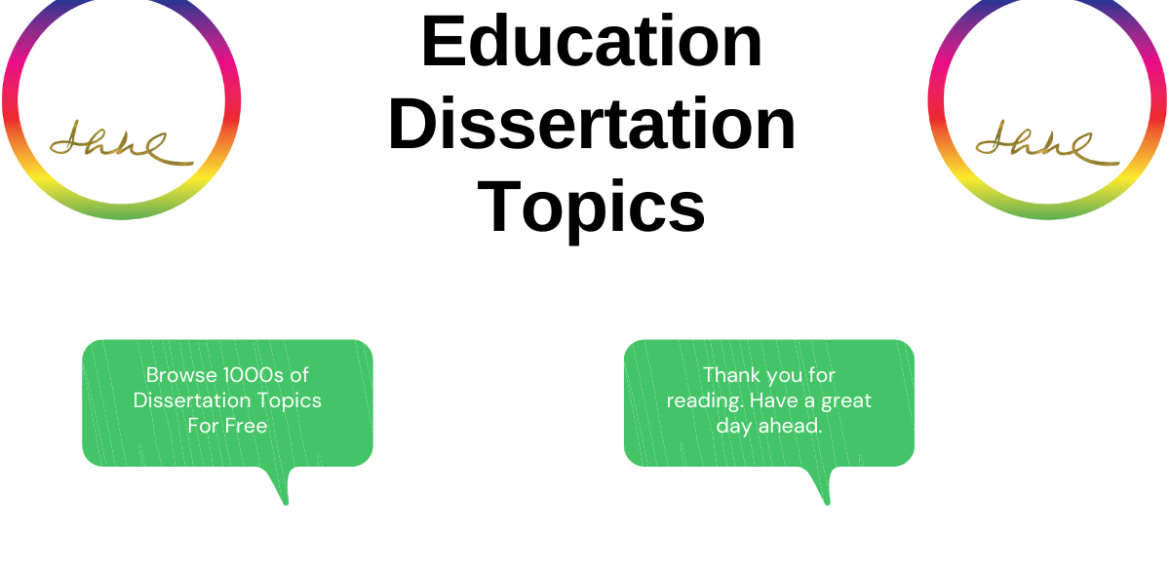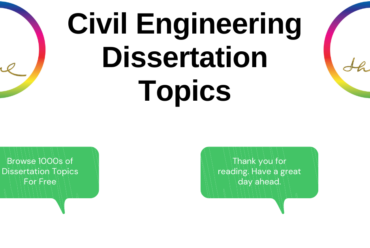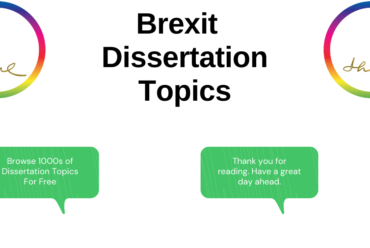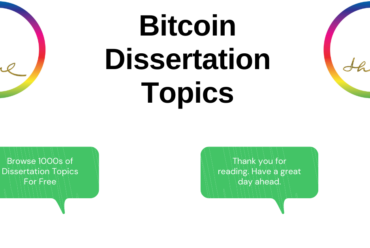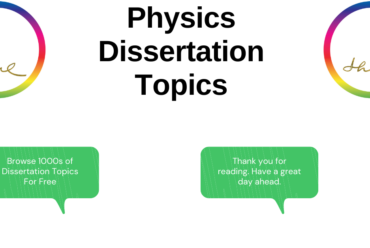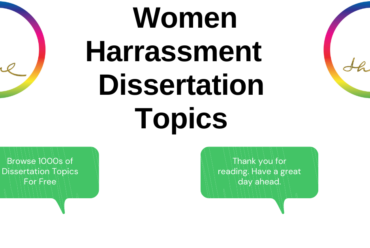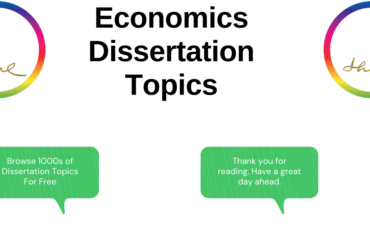Education Dissertation Topics
Adult Education Topics
- Adult learners have the option of pursuing a professional or vocation-based education. With schooling becoming more popular, you’ll have a plethora of dissertation themes to pick from (some of which are listed below).
- Wouldn’t it be more prudent for governments to invest more on education for the working population?
- Adult education has a plethora of benefits and is economically advantageous. There will be discussion.
- Governments should invest more in vocational and apprenticeship programmes and promote enrollment of adults.
- Adult education is more critical than ever to assisting individuals in adapting to new technology and lifestyles as people live longer.
- Students should be encouraged to enrol in courses on personal finance, wealth building, and social entrepreneurship.
- Environmental, energy, and resource conservation should be a major goal for individuals of all ages.
- Adult education can be quite beneficial for individuals who have lost their careers or been injured and require new skills.
- Determine the impact of adult education financing on the number of persons who are unemployed or on welfare, as well as the number of people who pay for their own education.
- Individuals seeking work in specialised fields may benefit from completing courses pertaining to their topic of interest.
- Discrimination against women in grants for senior citizens should be addressed in adult education courses.
- To what extent are jobless individuals who enrol in adult education courses healthier than those who do not?
- How much should adult education classes cost?
- Adult education courses that benefit the entire country should be free or significantly subsidised by the government.
- To what extent should all adults be provided with educational “tokens” that they may utilise at their leisure?
Editingarsenal has compiled a list of some of the most popular and common dissertation topics from a variety of academic disciplines, so you can pick and choose what to write about. If you need dissertation editing assistance , don’t hesitate to contact one of our qualified and experienced editors and proofreaders.
Primary Education Topics
- Because it comprises kids aged six to eleven, the majority of the developed world refers to it as elementary school education or primary school education. Several concerns to consider in this field of education dissertations include the following:
- Should elementary schools teach basic business and money management skills?
- How much more effectively does the Montessori Method of teaching work with children younger than twelve years old?
- Should elementary schools depend less on testing to determine pupils’ progress?
- Do you believe that lowering standards to ensure that kids pass tests and exams is a better idea than giving additional support for those who struggle?
- Are today’s elementary school curricula more appropriate for the industrial or informational eras?
- Should all elementary school pupils in the United Kingdom learn the fundamentals of computer programming?
- Can elementary school kids effectively take ownership and responsibility for their education?
- Should environmental preservation, energy conservation, and green living receive more attention in an obligatory primary school curriculum than they now do?
- Should traditional primary schools enable kids to learn at their own speed using the Montessori Method?
- What value do students place on formal primary education today in comparison to what their parents placed on formal primary education two decades ago?
- What can mainstream primary school instructors do to assist inner-city primary school kids in academic success?
- Are ethnic minority children lagging behind their white peers in inner city elementary schools, and what can be done to help?
- Do Vygotsky’s beliefs on creativity hold any water in today’s elementary school education?
- How can primary school instructors improve their own teaching on a regular basis?
Teacher Education Topics
- For many people, teaching is a vocation or a calling. Teachers of preschoolers, primary school kids, and secondary high school students contribute significantly to society by preparing the next generation of young brains for the workforce. The following are some suggestions for your educational dissertation paper:
- When it comes to dealing with young children, what is the difference between Montessori-trained teachers and those with more typical preschool or nursery training?
- Is it true that instructors nowadays have a lower level of commitment than in the past?
- Is teaching still viewed as a job in today’s society, rather than a legitimate career alternative, vocation, or calling?
- Do educators have the resources necessary to educate today’s youngsters in the face of new threats and problems, such as drugs and weapons?
- Teachers should coordinate their efforts with local law enforcement, social service agencies, and the students’ parents to assist difficult students.
- An examination of the approaches used to manage behaviour in teacher education programmes.
- Has teaching become a more risky profession over the previous two decades? What about the violence (verbal or physical) that students inflict on teachers?
- Should secondary school instructors be educated in basic self-defense if classrooms grow more disorderly and gang involvement among inner city adolescents increases?
- Is it possible that placing ex-soldiers in ‘difficult’ inner city school districts will have a beneficial effect on student success and behaviour?
- Do media studies degrees, such as the so-called “Mickey Mouse” sort, have any utility?
- Would more people pursue the teaching profession if support services and teacher training were upgraded, as well as teacher salaries?
- Has the function of the headteacher or principal morphed into that of a manager or administrator?
- How much influence do instructors currently have on character development?
- The key reasons for pursuing a profession as a teacher are examined.
- What will be the most significant problems for teacher preparation over the next decade in the aftermath of the pandemic?
- A comparison of on-the-job teacher education with regular college-based programmes.
- How has technology impacted teacher preparation?
- How many instructors “drop out” after three years in the profession?
University Education Topics
- Higher education will be covered in the section on undergraduate, postgraduate, and community college levels. The following are some probable dissertation topics in the subject of higher education:
- An examination of whether business administration and management degrees should place a higher premium on entrepreneurship?
- Are today’s university and college-level business courses more suited to the industrial or information eras?
- Is it ethical to waive or refund medical school tuition for individuals who choose to specialise in specialties where there is a physician shortage, such as Obstetrics?
- Is a university education still worthwhile in view of the current labour market issues, particularly as unemployment continues to climb as a result of the Coronavirus pandemic?
- Has the online dissemination of lectures during the Coronavirus pandemic damaged the academic achievement of university and college students?
- Many colleges are experimenting with online courses or more flexible learning as a strategy to decrease costs, notably at the master’s level. Is it beneficial to carry this trend forward at the collegiate level?
- How long should university degrees be spread out over in order to assist students in meeting escalating educational expenditures while still allowing them to get practical experience through at least two-year internships?
- Who performs better in their first five years of employment, those with only a university degree or those without a university education but with two years more work experience than the average university educated person?
- Are ‘A Levels’ accurate predictors of future academic success? A comparison of the many alternatives.
- How much opportunities do upper-class and socially disadvantaged students have at premier universities? Should members of underrepresented groups be granted reservations as a kind of positive discrimination?
- Is there a method for colleges to demonstrate that their courses are cost effective?
- An exploration of the ways in which the internet has impacted the learning of university students.
Public School Topics
- Over 95% of schools in the United Kingdom, the United States, Canada, and Australia are publicly funded and serve children ages four to eighteen. The following aspects of public school education could serve as dissertation topics for your education dissertation:
- Do public schools face a greater threat from drugs, gangs, and weapons-related violence than private schools?
- What is the best course of action for society and each individual child if all special needs schools are public?
- Is the number of British youngsters attending public schools declining?
- Many parents opt out of sending their children to public schools due to the high crime rates and low test scores associated with them.
- Do public schools, in comparison to private schools, do a better job of educating pupils for the demands of the real world?
- Should public school pupils be obligated to participate in sports?
- Should public schools expand their food technology offerings to include cooking, meal selection, and preparation in order to promote healthy eating?
- Is it appropriate to involve students in cafeteria food preparation and menu development?
- Is it necessary for religious schools to get government funding? Government support enables governments to monitor schools and guarantee that radicalism is not taught in curricula.
- Secularism or a loss of values in the younger generation is promoted by non-religious public school systems?
Pre-School Education Topics
- In the United Kingdom and the majority of other nations, education or formal schooling between the ages of 18 months and six years is referred to as preschool education. The following are some probable education dissertation topics in this field:
- Since the Montessori Method was established, educational outcomes in the pre-school system have improved.
- Do children taught in the Montessori method outperform their non-Montessori peers in terms of language and math skills?
- Is pre-school education preparing pupils better for the demands of primary school, or is it providing a play school environment that makes it more difficult for them to achieve those demands in primary school?
- Children who attend pre-school have an edge over those who do not.
- The Coronavirus outbreak has cast doubt on students’ ability to attend school. What are some of the positives and cons of infant homeschooling?
- The debate is whether or not to integrate obligatory pre-school and primary schools.
- What benefits do children who begin pre-school between the ages of two and three years have over those who do not attend?
- When compared to youngsters who have not attended pre-school, those who have are more suited to handle social situations.
- Should pupils be assessed on their knowledge as early as age two to determine how much they have learned?
- How much focus on language, numeracy, and motor abilities should be given during pre-school education?
- What influence does early childhood education have on the social and personal development of young children?
- Is the student-teacher ratio now used in the UK’s pre-school system appropriate, or should it be increased?
- Why do learners and practitioners benefit, or why do they not benefit, from home-based early childhood education and care (ECEC) programmes?
- Should pre-school instructors have a greater understanding of teaching, learning, assessment, and curriculum, or should they have a lesser understanding of child development theories?
- How much do young toddlers learn from their pre-school teachers’ social interactions?
Private School Topics
- Despite the high expense and absence of public funding, an increasing number of parents are selecting private schools for their children. If you choose to pursue this subject for your education dissertation, the following suggestions may help:
- Should the government, in view of the growing popularity of private schooling, follow suit by offering facilities not available in the public school system and then utilising the proceeds to strengthen the public school system?
- How much more motivated are private school teachers in comparison to public school teachers?
- Is it true that Montessori schools that get private funding perform better than those that receive public support at educating young children?
- Why do parents choose private schools over public ones for their children’s education?
- On standardised tests, how and why do private schools outperform publicly financed schools?
- Do children who attend Montessori schools between the ages of 18 months and 18 years outperform their peers who attend standard educational institutions academically?
- How much more critical is character development and personality development in private schools than in public schools?
- What are the advantages of private education versus public school for students?
- Do private school pupils have an edge over public school kids in terms of admission to prestigious colleges and universities? Is it reasonable to assert that this benefit is illegitimate?
- Is the purpose of a private school’s scholarship programme to recruit outstanding students, or is it purely for public relations purposes and to satisfy legal requirements?
- Private school education is qualitatively different from what pupils receive in typical public institutions.
- Is the money I’m saving truly worth a college education? The socioeconomic impact on the beneficiaries’ families.
- Is it true that students attending private schools have a stronger sense of self-esteem than those attending public schools?
College Education Topics
- Students between the ages of 11 and 18 are classified as collegiate or high school students, depending on their native state’s definition. In secondary school education, commonly known as secondary school education in the UK, there are GCSE Levels and Advanced (‘A’) Levels. Education dissertation themes cover a broad range of subjects, including the following:
- Should secondary school students no longer be required to take standardised tests?
- What are the benefits of standardised testing for secondary school students in the United Kingdom?
- Is there an enough emphasis on the development of knowledge of Modern Foreign Languages in secondary school education in the United Kingdom?
- Should high school pupils have the option of taking money management and entrepreneurial courses rather than more traditional subjects like history and geography?
- What can be done to raise the educational attainment of the working class in the United Kingdom, which has long been considered deficient?
- Should schools place a greater emphasis on the development of students’ personalities and character than on academics alone?
- The modern business requires information technology skills, but do students in the United Kingdom or Commonwealth countries such as Australia possess them?
- Is it preferable to have apprenticeship and vocational training programmes within or outside of high schools?
- Is gender segregation in the educational system useful or detrimental to pupils’ intellectual and social development?
- Are male students more successful when grouped with other male students of the same gender or with coed peers?
- What is the benefit of placing low-achieving children in classrooms with high achievers in order for them to perform better and earn higher grades?
- Is it better to teach in mixed ability classrooms or in mixed ability courses in secondary school to achieve higher educational outcomes?
- Should the emphasis in high school be on contemporary issues such as environmental protection, global warming, and resource conservation rather than on linguistics and arithmetic skills?
- Should religion instruction be reinstated in the classroom in order to develop better racial and religious tolerance?
- Is it possible for a multi-cultural secondary school to adopt the National Curriculum for Key Stage 3?
- Is the global legacy of the British Empire appropriately covered in the Key Stage 3 history curriculum, both good and bad?
- Should the British secondary school curriculum place a greater focus on mathematics, science, and English at the expense of other courses such as art or geography?
- Are British secondary school graduates prepared with the required information and communication technology (ICT) skills to compete in the modern workplace?
- How can educational underachievement among a large number of ethnic minority and working-class kids in the United Kingdom be effectively addressed?
- Will Brexit have an effect on the ability of secondary schools to offer language education and exchange programmes?
- Do you believe Brexit will have a detrimental effect on secondary school education in the UK, particularly in terms of foreign teacher recruitment?
- What is the greatest strategy for addressing gang culture and violent indisciplinary behaviour in schools as they grow?
Homeschooling Topics
- Home schooled youngsters are those who receive their education at home rather than in a public or private school. If you’d like, here are some additional suggestions for your education dissertation.
- Is it possible for totally home-schooled children to be socially competent?
- Is it necessary to tighten homeschooling restrictions, and if so, who should do it?
- Why is homeschooling gaining traction in the United Kingdom? How will the outbreak affect this?
- Is it beneficial for homeschooled children to be taught by one or both parents rather than a governess or another certified educator?
- Children who are homeschooled are less likely to have behavioural problems than their conventionally educated peers. What’s the deal with that?
- In comparison, there are more advantages to homeschooling than negatives.
- Students who are homeschooled frequently surpass their colleagues who attend formal schools.
- Should the growing trend of homeschooling be permitted to continue unabated by new regulatory and supervision legislation?
- Which components of home education should be incorporated into the standard educational system, and which ones?
- What effect would it have on teen crime, dropout rates, and other concerns if kids could engage in typical school programmes from home, via the Internet, rather than physically attending school each day?
- Is the National Curriculum applicable to pupils who are homeschooled? If it is the case, why?
- Should uneducated parents be permitted to home teach their children?
- Should all homeschooling be monitored via online assessment lessons?
- How and why is internet education advantageous for young homeschoolers?
Holistic Education Topics
- The purpose of holistic education is to mould pupils into well-rounded persons. Consider centering your dissertation on education on this subject.
- Should schools place a stronger premium on holistic development, even if it means sacrificing academics?
- What is a holistic education?
- Religiously affiliated school systems dedicate additional resources to ensuring that kids are well-rounded and informed.
- Can the comprehensive education provided by a school be evaluated and quantified? Which yardsticks would you use to determine the size of something?
- Are teachers prepared to deliver a well-rounded education to their students?
- Do parents choose to educate their children or send them to private schools rather than public schools in order to ensure they obtain a well-rounded education?
- Is it true that pupils who obtain a well-rounded education perform academically better than those who do not?
- With today’s educational system, the question arises, “Is holistic education a myth?”
- What can we realistically expect teachers to do with their assigned workloads if they are expected to educate the full person?
- Does the Montessori Method outperform the standard schooling system in terms of holistic education?
- Based on an evaluation of accessible school documents, how do schools define their holistic approach to education?
- Is holistic education a made-up idea that only lives in the heads of school administrators?
- This inquiry looks at how OFSTED sees holistic education.

